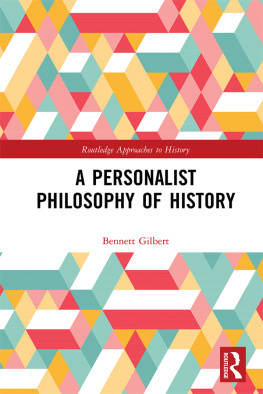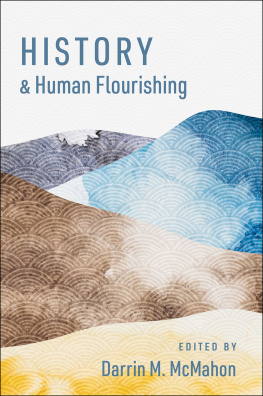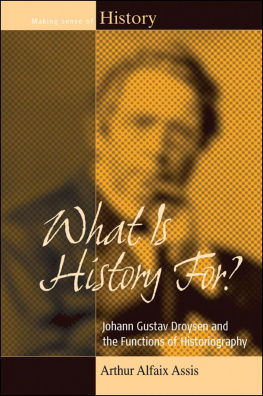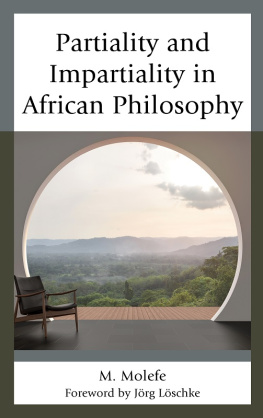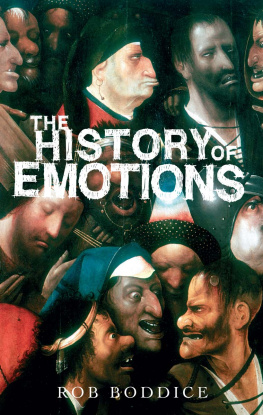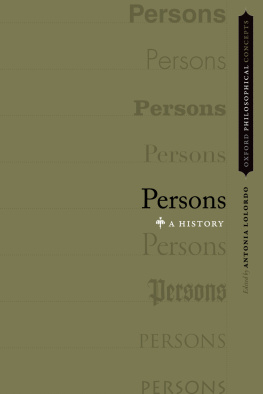A Personalist Philosophy of History
Historical study has traditionally been built around the placement of the human at the center of inquiry. The de-stabilized concepts of the human in contemporary thought challenge this configuration. However, the ways in which these challenges provoke new historical perspectives both expand and enrich historical study but are also weak and vulnerable in their concept of the human, lacking or omitting something valuable in our self-understanding. A Personalist Philosophy of History argues for a robust concept of personhood in our experience of the past as a way to resolve this conflict.
Focused on those who know history, rather than on the abstract properties of knowledge, it extends the moral agency of persons into non-human, trans-human, and deep history domains. It describes an approach to moral life through historical experience and study, rather than through abstractions. And it describes a kind of historiography that matches factual accuracy to both the constructed nature of understanding and to unavoidable moral purpose.
Bennett Gilbert is Senior Instructor in University Studies at Portland State University, USA.
Routledge Approaches to History
The Historiography of Transition
Critical Phases in the Development of Modernity (14941973)
Edited by Paolo Pombeni
The Emergence of Historical Forensic Expertise
Clio Takes the Stand
Vladimir Petrovi
Historical Mechanisms
An Experimental Approach to Applying Scientific Theories to the Study of History
Andreas Boldt
Values, Objectivity, and Explanation in Historiography
Tor Egil Frland
The Work of History
Constructivism and a Politics of the Past
Kalle Pihlainen
History and Sociology in France
From Scientific History to the Durkheimian School
Robert Leroux
Universal History and the Making of the Global
Edited by Hall Bjrnstad, Helge Jordheim and Anne Rgent-Susini
Cowrie Shells and Cowrie Money
A Global History
Bin Yang
A Personalist Philosophy of History
Bennett Gilbert
For more information about this series, please visit: www.routledge.com/Routledge-Approaches-to-History/book-series/RSHISTHRY
A Personalist Philosophy of History
Bennett Gilbert

First published 2019
by Routledge
2 Park Square, Milton Park, Abingdon, Oxon OX14 4RN
and by Routledge
52 Vanderbilt Avenue, New York, NY 10017
Routledge is an imprint of the Taylor & Francis Group, an informa business
2019 Bennett Gilbert
The right of Bennett Gilbert to be identified as author of this work has been asserted by him in accordance with sections 77 and 78 of the Copyright, Designs and Patents Act 1988.
All rights reserved. No part of this book may be reprinted or reproduced or utilised in any form or by any electronic, mechanical, or other means, now known or hereafter invented, including photocopying and recording, or in any information storage or retrieval system, without permission in writing from the publishers.
Trademark notice: Product or corporate names may be trademarks or registered trademarks, and are used only for identification and explanation without intent to infringe.
British Library Cataloguing-in-Publication Data
A catalogue record for this book is available from the British Library
Library of Congress Cataloging-in-Publication Data
A catalog record for this book has been requested
ISBN: 978-0-8153-7925-6 (hbk)
ISBN: 978-1-351-21626-5 (ebk)
Typeset in Garamond
by Apex CoVantage, LLC
For Damien Jack
Contents
I owe the greatest debts of gratitude to Damien Jack, my partner in life; to my dear friends Nicholas Begley, Tommy Bourgeois, and Alexander Pierson; and to many other friends, chief among them Katrina, Paul and Susan Allen, Janis Carpenter, David Dixon, lker Gkberk, Rocco Harris, Michael Lloyd, Kevin McCormick, Jack and Amy Meyers, Leo Mondor and Jim Kwan, Finn Turner and Jake Warner, and Aaron Vienghkou and Jen Chow; and to our dog Tycho.
My colleagues have shown friendship just as much as collegiality. I am grateful for the kind support of the philosophers who have trusted me: Frank Ankersmit, Talbot Brewer, Natan Elgabsi, Jouni-Mathis Kuukkanen, Allen Megill, Albert (Randy) Spencer, Marcus Telles; historians and my teachers Richard Beyler, Thomas Luckett, and John Ott; and my warm departmental colleagues Kathy Barich, Rowanna Carpenter, Maurice Hamington, and Krys Roth. The University Studies Program at Portland State University and the Professional Development Fund of the Portland State University Faculty Association have helped me at every turn. All of these persons and organizations have tolerated my work on this book and made it, and my life, much easier and better than it otherwise would have been.
Was that voice ourselves? Scraps, orts and fragments, are we, also, that? The voice died away.
Virigina Woolf, Between the Acts
It hardly seems that the chief point of the following pages should require 100,000 words for the reader to understand or for me to explain. Nevertheless, that is the way of philosophy. Good thinking requires us to elaborate and argue insights so that they are fully defensible in all honesty. I have tried to follow this path in the nine years during which these ideas have formed for me out of the experiences of living, reading, and thinking. The problems to which experience led deeply affected me and were broad and fundamental; and in a great part of their sphere, seeking the finality within the reach of emotions and serendipity, they sloped toward the special ground of the philosophy of history, a kind of fertile valley so pitched down among the mountains peaks of literature and art, archaeology, and anthropology, as well as disciplinary philosophy and history, as to retain soil that all its merely local turbulence has nourished rather than exhausted. But in the view from the neighboring great peaks of theory, as well as in the view of some of historys own theorists, its future has seemed dim and thin. One might say that the reason people think it was worn out is, so to speak, overproduction. Hegels plausible rationalization of human behavior launched the industrial production of philosophized history as a mass ornament, with numerous competing enterprises that, wanting to or not, wore out the apparent available directions of thought and, having run out the clock of history itself by 1945, stopped. But Western and world philosophy continued through the winters and summers on the mountaintops. Some runnels from these revivified the valley.
The philosophy of history has had a crankled path toward this situation. It seems to me that Critical Theory has been an immensely important key in this development for the field and for my own thinking, though I am not a Marxist and though I take a different view of the relation of the humankind and nature from Adornos. The work of Critical Theory in its first broad phase (up to 1950) was in one respect a project in the philosophy of history. Max Horkheimers dissertation was on the bourgeois philosophy of history developed from Vico onward; Herbert Marcuse considered theory as having to move from phenomenological or existential historicity to history itself; he and Horkheimer and Adorno and of course Walter Benjamin produced philosophical re-orientations of historical theory. Latterly, post-modernism opened a wobbly way for moral thought about history.

